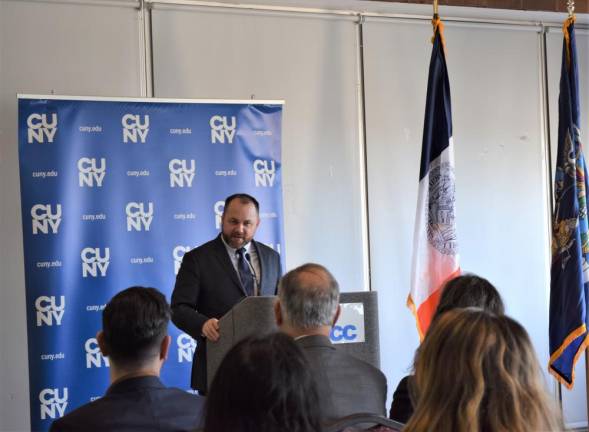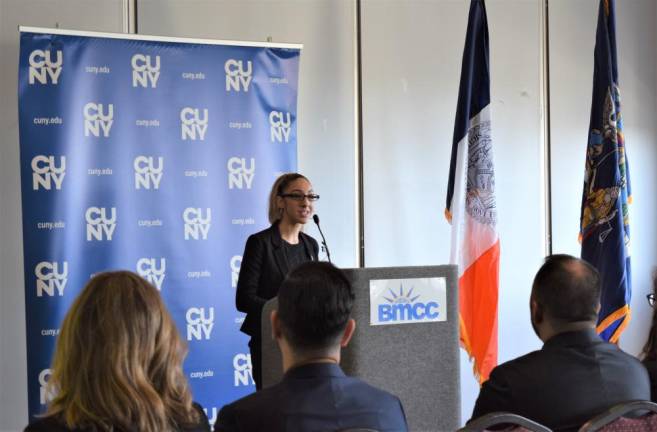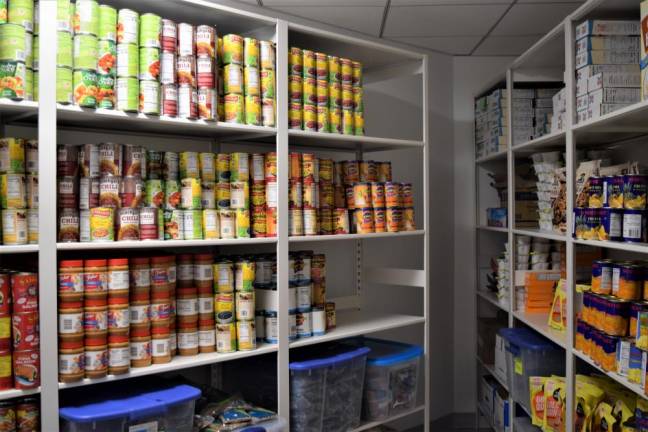Food insecurity, defined by the United States Department of Agriculture as “the limited or uncertain availability of nutritionally adequate and safe foods,” or the ability to acquire said foods in a “socially acceptable” way, is an ongoing problem for many students in the CUNY system.
Nearly half of respondents to a CUNY survey said that they had been food insecure within the last 30 days. And, as school officials acknowledge, food insecurity is underreported.
Now, the New York City Council is stepping up to address the issue. At a press conference at the Borough of Manhattan Community College (BMCC) on December 12, Speaker Corey Johnson announced a $1 million pilot program targeting food insecurity at CUNY’s seven community colleges. The money will be distributed to 1,250 qualifying students in the fall and spring semesters, at $400 per student. This is projected to provide each student with approximately three $10 meals per week, as vouchers, or swipe-cards, that can be used in the school’s cafeteria.
The Stigma of Hunger
Letisha Moumin is a first-year business administration major at BMCC, she’s also a full-time parent to two children. She reflected on the stigma associated with admitting food insecurity, which can lead to underreporting. "I think there's a big weight on students' shoulders: it's embarrassing to say 'Hey, I need help.' That's a big reason why [students] looking at the eligibility email choose not to do it – because why would they? it’s embarrassing. How would they look going into that office?”
BMCC is trying to alleviate some of that shame by posting flyers throughout the campus advertising a nationwide program called Single Stop. The school is also sharing information about Single Stop on all course syllabuses. Single Stop pools all of the financial information about a student to provide them with a comprehensive understanding of what services they’re eligible for, and helps them navigate their options.
Those services include a food pantry called Panther Pantry, which opened at BMCC in April 2018, and, for some students, the SNAP (food stamps) program. The CUNY Urban Food Policy Institute estimates that, in 2015, only 17 percent of food-insecure students were even aware of the resources and aid available to them.
Single Stop’s food aid is crucial to students’ success, as Speaker Johnson pointed out. “On top of the stress of passing exams and getting good grades, we know that too many CUNY students are actually hungry, literally hungry – they don’t have access to the food that they need. They are sacrificing meals that they should be having to make their brains and bodies better because they need that money for books, or for housing, in an expensive city. That is unacceptable in 2019 in the greatest city in the world.”
Targeting Those in Need
In an example of the complexity of the issue of food insecurity, the Council-funded program excludes students who qualify for SNAP in order to target those who might otherwise go unaided. The program also targets so-called Dreamers, those with Deferred Action for Childhood Arrivals (DACA) status.
“We live in one of the richest cities in the world, yet more than one million New Yorkers go insecure for food every single day," said Johnson, "and a disproportionate number of them are college students.” They are often juggling other responsibilities, he noted, like jobs, being a parent themselves, or providing for their families, all while attending classes.
“Sometimes you just need to put your pride aside, and realize that this is a really beneficial for everyone,” Moumin said. “Everyone needs to eat, and everyone needs help in some way or another.”
Added Johnson, “We need to make sure that those students ... are getting the support that they need. Our future really really depends on it.”


